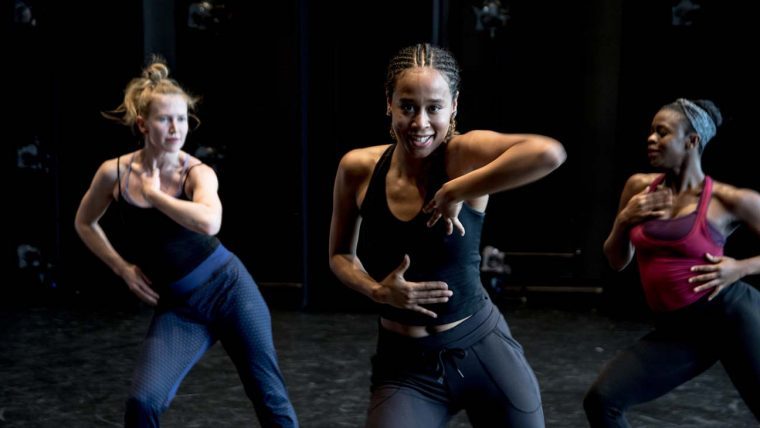
Dir: Khadifa Wong
Khadifa Wong’s life experience as a dancer informs her lively if over-talkie debut feature about the origins of jazz dance.
Celebrating its international premiere at this year’s Raindance Film Festival, the film traces the roots of this expressive and iconically American dance form from its early history in the 19th century and through to the current day. And it all start during slavery – wouldn’t you know? Back then it was a vital form of protest, not just a way of expressing enjoyment. Well that certainly makes it a topical film with the current Black Lives Matter month in full swing.
Wong’s ground-breaking documentary also offers a political and social chronicle of the times, alighting on more weighty issues of racism, socialism and sexism while offering up a passionate and thought-provoking musical biopic.
The dancer and director has delved into the archives enlivening her film with cuttings and news footage. Over fifty experts offer up their valuable insight from choreographers to teachers and dancers themselves so it does occasionally feel overwhelming to have so much knowledge and opinion in the space of less than two hours. But the movement and dance elements are what really makes this a winner and Matt Simpkins’ camerawork captures the essence of bodies gyrating to great affect.
Curiously enough it was white men in the shape of Bob Fosse, Jerome Robbins and Jack Cole who really emerged as the forerunners of the form. And one of the most engaging talking heads, dramaturg and choreographer Melanie George shares her thoughts about why these luminaries were so influential while Black innovators were often lesser known. And she discovers that their ability to codify the various forms of jazz dance with Hollywood and Broadway that gave it a different profile that took it above and beyond its roots and origins. The lesser-known artists also have their say, Frank Hatchett, Pepsi Bethel and Fred Benjamin Wong amongst them – although none is particularly famous to mainstream audiences.
Wong cleverly makes the point that jazz dance was actually a pared down version of the tribal form of communication for many Africans, and particularly slaves, enabling them to express themselves with their bodies in highly syncopated, exaggerated and meaningful ways – almost like silent film – relying on strong facial and body language – to make their feelings known. The Pattin’ Juba and Cakewalk were both dances that originated in the plantations of the Deep South where enslavement relied heavily on this kind of vital communication for protest, or even survival.
Eventually jazz became more sophisticated and sinuous moving through the bebop and hard bop years and we start to recognise names such as Charlie Parker, Miles Davis and Thelonious Monk. There is also some impressive clips that show James Brown and Little Richard and really convey the seriousness of their political message – they were not just merely there to entertain.
A documentary about dance expression should always focus primarily on the dancing, and this is the only slight criticism that one can level at Uprooted. Wong has done so much research for her deep dive into the subject seems to focus on talking and commentary over movement and music. When we see Chita Rivera and Graciela Daniele doing their stuff the film comes alive — so their stories of segregation and racial alienation seem all the more poignant. There is a fascinating piece about Patrick Swayze’s mother Patsy, being the only white dance teacher in Texas to allow Black children into her school. If there’s one talent those entertainers have it’s the ability to move their bodies in magnetic and beguiling ways. And Black dancers have it in spades. MT
RAINDANCE FILM FESTIVAL 2020 | 28 OCTOBER – 7 NOVEMBER 2020